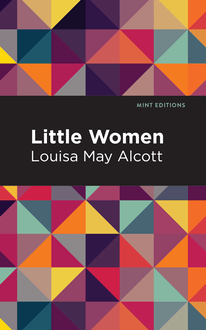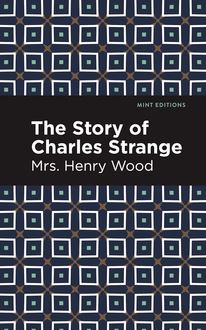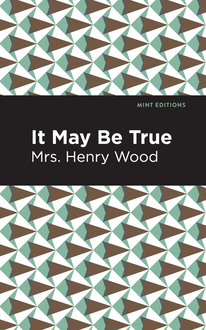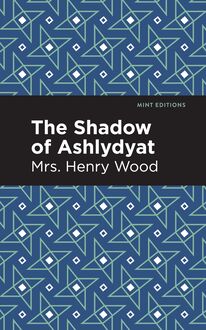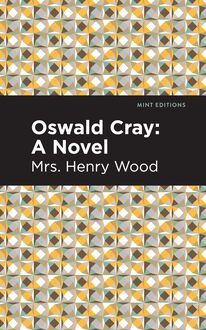-
 Univers
Univers
-
 Ebooks
Ebooks
-
 Livres audio
Livres audio
-
 Presse
Presse
-
 Podcasts
Podcasts
-
 BD
BD
-
 Documents
Documents
-
- Cours
- Révisions
- Ressources pédagogiques
- Sciences de l’éducation
- Manuels scolaires
- Langues
- Travaux de classe
- Annales de BEP
- Etudes supérieures
- Maternelle et primaire
- Fiches de lecture
- Orientation scolaire
- Méthodologie
- Corrigés de devoir
- Annales d’examens et concours
- Annales du bac
- Annales du brevet
- Rapports de stage
La lecture à portée de main
Vous pourrez modifier la taille du texte de cet ouvrage
Découvre YouScribe en t'inscrivant gratuitement
Je m'inscrisDécouvre YouScribe en t'inscrivant gratuitement
Je m'inscrisEn savoir plus
Vous pourrez modifier la taille du texte de cet ouvrage
En savoir plus

Description
When Paul Manning begins working as an engineer clerk for the railroad, he decides to move in with his mother’s family on their farm. There, he is able to be closer to his job as the railroad paves the way for further industrialization of rural areas. While Paul is advancing in his career and settling in his new home, his attention is held by his cousin, Phillis. Paul and Phillis become quick friends and confidants. Worried for her, Paul keeps a close eye on Phillis as she comes of age. Because of Phillis’ beauty and high intelligence, she does not seem to fit into any social circles. Many other women feel that she is not lady-like enough, and men are threatened by her superior intellect. However, as Paul and Phillis grow closer, Phillis meets his boss, and quickly falls in love with him. Edward Holdsworth, Paul’s boss, is a very intelligent man, and is not intimidated by Phillis’ equal intellect. Though, as their relationship continues, Paul becomes uneasy about the match, feeling uncomfortable about the age gap between his cousin and Holdsworth. Despite his objections and guidance, Phillis ultimately must decide her place in the world by herself. As she grows older, this only becomes more confusing as the Industrial Revolution rises alongside her, changing a world that she never yet had the chance to gain footing in.
Separated into four parts, Cousin Phillis contains a narrative the spans throughout both Paul and Phillis’ coming of age as they grow, find occupations, love, and navigate the rigid social expectations of the Victorian era. Considered by literary critics and professionals to be one of Elizabeth Cleghorn Gaskell’s crowning achievements, Cousin Phillis is a moving narrative filled with drama, sentiment, and humor. While Cousin Phillis reveals thoughtful perspectives on Victorian life, especially regarding gender dynamics and social changes amid the Industrial Revolution, it also portrays the universally relatable experience of coming-of-age, creating a narrative with both historical significance and timeless relatability.
This edition of Cousin Phillis by Elizabeth Cleghorn Gaskell features a striking new cover design and is printed in an easy-to-read font, making it both readable and modern.
Sujets
Informations
| Publié par | Mint Editions |
| Date de parution | 09 février 2021 |
| Nombre de lectures | 0 |
| EAN13 | 9781513276427 |
| Langue | English |
| Poids de l'ouvrage | 2 Mo |
Informations légales : prix de location à la page 0,0350€. Cette information est donnée uniquement à titre indicatif conformément à la législation en vigueur.
Extrait
Cousin Phillis
Elizabeth Cleghorn Gaskell
Cousin Phillis was first published in 1864.
This edition published by Mint Editions 2020.
ISBN 9781513271422 | E-ISBN 9781513276427
Published by Mint Editions®
minteditionbooks .com
Publishing Director: Jennifer Newens
Design & Production: Rachel Lopez Metzger
Project Manager: Micaela Clark
Typesetting: Westchester Publishing Services
C ONTENTS P ART I P ART II P ART III P ART IV
P ART I
It is a great thing for a lad when he is first turned into the independence of lodgings. I do not think I ever was so satisfied and proud in my life as when, at seventeen, I sate down in a little three-cornered room above a pastry-cook’s shop in the county town of Eltham. My father had left me that afternoon, after delivering himself of a few plain precepts, strongly expressed, for my guidance in the new course of life on which I was entering. I was to be a clerk under the engineer who had undertaken to make the little branch line from Eltham to Hornby. My father had got me this situation, which was in a position rather above his own in life; or perhaps I should say, above the station in which he was born and bred; for he was raising himself every year in men’s consideration and respect. He was a mechanic by trade, but he had some inventive genius, and a great deal of perseverance, and had devised several valuable improvements in railway machinery. He did not do this for profit, though, as was reasonable, what came in the natural course of things was acceptable; he worked out his ideas, because, as he said, “until he could put them into shape, they plagued him by night and by day.” But this is enough about my dear father; it is a good thing for a country where there are many like him. He was a sturdy Independent by descent and conviction; and this it was, I believe, which made him place me in the lodgings at the pastry-cook’s. The shop was kept by the two sisters of our minister at home; and this was considered as a sort of safeguard to my morals, when I was turned loose upon the temptations of the county town, with a salary of thirty pounds a year.
My father had given up two precious days, and put on his Sunday clothes, in order to bring me to Eltham, and accompany me first to the office, to introduce me to my new master (who was under some obligations to my father for a suggestion), and next to take me to call on the Independent minister of the little congregation at Eltham. And then he left me; and though sorry to part with him, I now began to taste with relish the pleasure of being my own master. I unpacked the hamper that my mother had provided me with, and smelt the pots of preserve with all the delight of a possessor who might break into their contents at any time he pleased. I handled and weighed in my fancy the home-cured ham, which seemed to promise me interminable feasts; and, above all, there was the fine savour of knowing that I might eat of these dainties when I liked, at my sole will, not dependent on the pleasure of any one else, however indulgent. I stowed my eatables away in the little corner cupboard—that room was all corners, and everything was placed in a corner, the fire-place, the window, the cupboard; I myself seemed to be the only thing in the middle, and there was hardly room for me. The table was made of a folding leaf under the window, and the window looked out upon the market-place; so the studies for the prosecution of which my father had brought himself to pay extra for a sitting-room for me, ran a considerable chance of being diverted from books to men and women. I was to have my meals with the two elderly Miss Dawsons in the little parlour behind the three-cornered shop downstairs; my breakfasts and dinners at least, for, as my hours in an evening were likely to be uncertain, my tea or supper was to be an independent meal.
Then, after this pride and satisfaction, came a sense of desolation. I had never been from home before, and I was an only child; and though my father’s spoken maxim had been, “Spare the rod, and spoil the child”, yet, unconsciously, his heart had yearned after me, and his ways towards me were more tender than he knew, or would have approved of in himself could he have known. My mother, who never professed sternness, was far more severe than my father: perhaps my boyish faults annoyed her more; for I remember, now that I have written the above words, how she pleaded for me once in my riper years, when I had really offended against my father’s sense of right.
But I have nothing to do with that now. It is about cousin Phillis that I am going to write, and as yet I am far enough from even saying who cousin Phillis was.
For some months after I was settled in Eltham, the new employment in which I was engaged—the new independence of my life—occupied all my thoughts. I was at my desk by eight o’clock, home to dinner at one, back at the office by two. The afternoon work was more uncertain than the morning’s; it might be the same, or it might be that I had to accompany Mr. Holdsworth, the managing engineer, to some point on the line between Eltham and Hornby. This I always enjoyed, because of the variety, and because of the country we traversed (which was very wild and pretty), and because I was thrown into companionship with Mr. Holdsworth, who held the position of hero in my boyish mind. He was a young man of five-and-twenty or so, and was in a station above mine, both by birth and education; and he had travelled on the Continent, and wore mustachios and whiskers of a somewhat foreign fashion. I was proud of being seen with him. He was really a fine fellow in a good number of ways, and I might have fallen into much worse hands.
Every Saturday I wrote home, telling of my weekly doings—my father had insisted upon this; but there was so little variety in my life that I often found it hard work to fill a letter. On Sundays I went twice to chapel, up a dark narrow entry, to hear droning hymns, and long prayers, and a still longer sermon, preached to a small congregation, of which I was, by nearly a score of years, the youngest member. Occasionally, Mr. Peters, the minister, would ask me home to tea after the second service. I dreaded the honour, for I usually sate on the edge of my chair all the evening, and answered solemn questions, put in a deep bass voice, until household prayer-time came, at eight o’clock, when Mrs. Peters came in, smoothing down her apron, and the maid-of-all-work followed, and first a sermon, and then a chapter was read, and a long impromptu prayer followed, till some instinct told Mr. Peters that supper-time had come, and we rose from our knees with hunger for our predominant feeling. Over supper the minister did unbend a little into one or two ponderous jokes, as if to show me that ministers were men, after all. And then at ten o’clock I went home, and enjoyed my long-repressed yawns in the three-cornered room before going to bed. Dinah and Hannah Dawson, so their names were put on the board above the shop-door—I always called them Miss Dawson and Miss Hannah—considered these visits of mine to Mr. Peters as the greatest honour a young man could have; and evidently thought that if after such privileges, I did not work out my salvation, I was a sort of modern Judas Iscariot. On the contrary, they shook their heads over my intercourse with Mr. Holdsworth. He had been so kind to me in many ways, that when I cut into my ham, I hovered over the thought of asking him to tea in my room, more especially as the annual fair was being held in Eltham market-place, and the sight of the booths, the merry-go-rounds, the wild-beast shows, and such country pomps, was (as I thought at seventeen) very attractive. But when I ventured to allude to my wish in even distant terms, Miss Hannah caught me up, and spoke of the sinfulness of such sights, and something about wallowing in the mire, and then vaulted into France, and spoke evil of the nation, and all who had ever set foot therein, till, seeing that her anger was concentrating itself into a point, and that that point was Mr. Holdsworth, I thought it would be better to finish my breakfast, and make what haste I could out of the sound of her voice. I rather wondered afterwards to hear her and Miss Dawson counting up their weekly profits with glee, and saying that a pastry-cook’s shop in the corner of the market-place, in Eltham fair week, was no such bad thing. However, I never ventured to ask Mr. Holdsworth to my lodgings.
There is not much to tell about this first year of mine at Eltham. But when I was nearly nineteen, and beginning to think of whiskers on my own account, I came to know cousin Phillis, whose very existence had been unknown to me till then. Mr. Holdsworth and I had been out to Heathbridge for a day, working hard. Heathbridge was near Hornby, for our line of railway was above half finished. Of course, a day’s outing was a great thing to tell about in my weekly letters; and I fell to describing the country—a fault I was not often guilty of. I told my father of the bogs, all over wild myrtle and soft moss, and shaking ground over which we had to carry our line; and how Mr. Holdsworth and I had gone for our mid-day meals—for we had to stay here for two days and a night—to a pretty village hard by, Heathbridge proper; and how I hoped we should often have to go there, for the shaking, uncertain ground was puzzling our engineers—one end of the line going up as soon as the other was weighted down. (I had no thought for the shareholders’ interests, as may be seen; we had to make a new line on firmer ground before the junction railway was completed.) I told all this at great length, thankful to fill up my paper. By return letter, I heard that a second-cousin of my mother’s was married to the Independent minister of Hornby, Ebenezer Holman by name, and lived at Heathbridge proper; the very Heathbridge I had described, or so my mother believed
-
 Univers
Univers
-
 Ebooks
Ebooks
-
 Livres audio
Livres audio
-
 Presse
Presse
-
 Podcasts
Podcasts
-
 BD
BD
-
 Documents
Documents
-
Jeunesse
-
Littérature
-
Ressources professionnelles
-
Santé et bien-être
-
Savoirs
-
Education
-
Loisirs et hobbies
-
Art, musique et cinéma
-
Actualité et débat de société
-
Jeunesse
-
Littérature
-
Ressources professionnelles
-
Santé et bien-être
-
Savoirs
-
Education
-
Loisirs et hobbies
-
Art, musique et cinéma
-
Actualité et débat de société
-
Actualités
-
Lifestyle
-
Presse jeunesse
-
Presse professionnelle
-
Pratique
-
Presse sportive
-
Presse internationale
-
Culture & Médias
-
Action et Aventures
-
Science-fiction et Fantasy
-
Société
-
Jeunesse
-
Littérature
-
Ressources professionnelles
-
Santé et bien-être
-
Savoirs
-
Education
-
Loisirs et hobbies
-
Art, musique et cinéma
-
Actualité et débat de société
- Cours
- Révisions
- Ressources pédagogiques
- Sciences de l’éducation
- Manuels scolaires
- Langues
- Travaux de classe
- Annales de BEP
- Etudes supérieures
- Maternelle et primaire
- Fiches de lecture
- Orientation scolaire
- Méthodologie
- Corrigés de devoir
- Annales d’examens et concours
- Annales du bac
- Annales du brevet
- Rapports de stage


